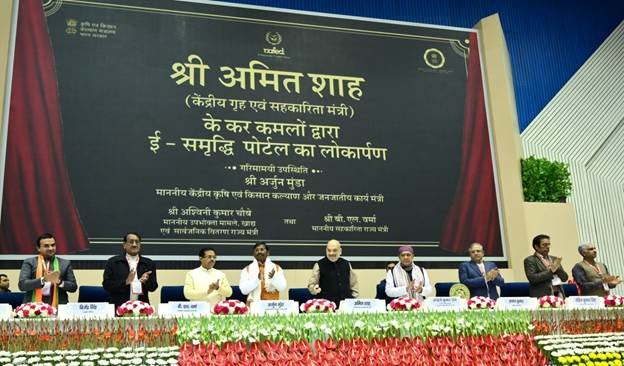Centre launches the portal for registration, procurement and payment of tur dal producers
Before the sowing operation, tur farmers can register on the portal to sell their produce to NAFED and NCCF.
Union Home Minister and Minister of Cooperation Amit Shah launched the portal developed by National Agricultural Cooperative Marketing Federation of India Ltd. (NAFED)and National Cooperative Consumers’ Federation of India Limited (NCCF) for registration, procurement and payment of tur dal producing farmers in New Delhi. Amit Shah addressed the national symposium organized on ‘Self-reliance in Pulses’.
In his address, the union Home minister and Minister of Cooperation said that today we have taken such an initiative through the portal which will facilitate the farmers in selling tur dal by registering in advance through NAFED and NCCF and they will be able to get payment at MSP or more than MSP at market price through DBT. He said that with this beginning, in the coming days the prosperity of farmers, self-reliance of the country in the production of pulses and nutrition campaigns will be strengthened. With this, our campaign of crop pattern changing will gain momentum and there will also be changes in the areas of land reform and water conservation.
Amit Shah said that the portal has been designed in a very scientific manner, in which Aadhaar number is verified, unique ID of the farmer is created, it has been integrated with land records and integrated with Aadhaar based payment. There is a system of transferring the value of farmers produce directly to the bank accounts of farmers without any kind of corruption. He said that efforts are also being made to integrate this portal with warehousing agencies on a real time basis.
The Home Minister and Minister of Cooperation praised NAFED and NCCF for launching the portal in a very short time. He appealed to all the Farmers Producer Organisations (FPOs) and progressive farmers of the country to create awareness about the portal in all the areas where pulses can be produced. He said that farmers should be made aware that registration can be done in all languages through a very simple step. He said that after getting the acknowledgment of registration, NAFED and NCCF are bound to buy the pulses of the farmers at least at MSP and the option of selling their pulses in the market is also open to the farmers.
In the coming days under the leadership of Prime Minister Narendra Modi a large part of warehousing is going to come in the cooperative sector. Each Primary Agricultural Cooperative Credit Society (PACS) is moving towards building a larger warehouse, this will solve the problem of shipping crops away. The Minister of Cooperation said that the government will at least give the MSP rate and if farmers get higher prices in the market, they are also free to sell their crops in the market. He appealed to the farmers to adopt pulses and make the country self-reliant in the pulses sector before January 1, 2028 so that India does not have to import even a single kilogram of pulses.
Before the sowing operation, tur farmers can



